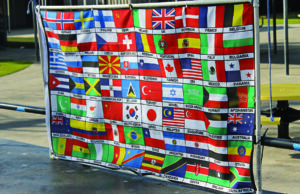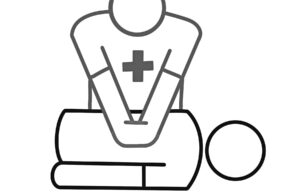Academic Programs Pursue Modernization in Curriculum and Exams
In a continuous effort to update courses, both Advanced Placement (AP) and International Baccalaureate (IB) are modifying classes this year. Along with the launches of the Common Core standards and new SAT, the changes serve to avert the educational focus away from memorization and towards critical thinking.
Art history and European history are two AP courses with new structures this year. In Art History, the material now focuses on 250 specific artworks with a greater emphasis on non-Western art, whereas before it revolved around general, Western periods of art. The test in May is relatively unchanged with a few sectional rearrangements.
“To me it seems like it’s going to be harder because students are going to have to know specific information about the artworks,” Jennifer Kaye, art and art history teacher, said. “I like that they have a set list, but at the same time it makes it more difficult because some of the artworks I’ve never even seen before…so it’s hard to find some information in order to teach them.”
For Kaye and her students, the new standards mean that the class experience itself will be different.
“It’s completely changed the way I teach the class…I have less artworks that I talk about, but we talk about them way more in depth,” Kaye said. “I (try) to get students to compare and contrast pieces more.”
Meanwhile, in European history, the curriculum will stay relatively the same, but the exam has been heavily modified to include fewer but more complex multiple choice questions based on “stimulus” passages, additional short answer sections, and shorter long essays.
“The test is a little different. There’s more different types of writing….so it’s a lot less just recall,” Scott Ellis, European and world history teacher, said. “Way more of the test is going towards your ability to read something and think about what you just read rather than simply just pure memorization….You need to be able to work with stuff.”
Ellis will also be changing the way he teaches his classes by incorporating more analysis activities. He thinks AP’s changes are for the better.
“This is a world where we Google things and [students] have access to so much information,” Ellis said, “so the focus on memorizing facts doesn’t seem to make as much sense in this digital age.”
IB subjects regularly undergo seven year assessment cycles, which are staggered to allow schools time to react to revisions. Each year, educators, IB administrators, and professionals build a new subject for the next year after analyzing prior objectives and tests. This year, Philosophy and Environmental Science are in the first year of their cycles.
“It’s more like refining content,” Deborah Dogancay, chemistry teacher and IB coordinator, said. “The things they took out in chemistry, they took out because it was factish and it seemed like (students) were memorizing it. We don’t want (students) to memorize, we want them to show that they really understood something and can think on their own. IB has always been about fostering infinite learning and creating lifelong learning.”
IB Community-Action-Service (CAS) hours for full diploma candidates have also fully transitioned to digital tracking using Managebac, a website specifically designed for IB curriculum. The eight primary learning outcomes for the hours are the same, but now students will upload journal and photo evidence of their activities directly to their accounts, while CAS coordinator Nick Colangelo will approve activities and communicate opportunities through the platform.
“I think that (students) will see an improvement in communication,” Colangelo said. “It also gives a chance for the IB students to interact with one another in a digital space….However, I think face-to-face meetings are still important.”
The changes in AP and IB exams, curriculum and teaching methods signify the path of modernization that education is embarking on amidst the technological age. Students and teachers should expect to feel these effects this year and in the coming years.


